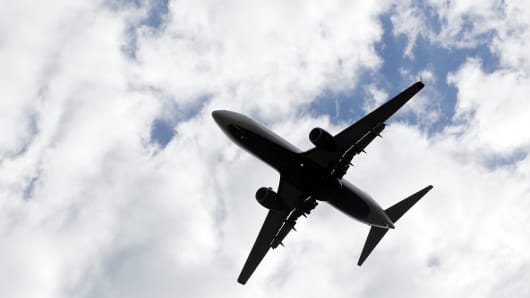Airlines offer a host of optional fees for checked baggage, premium seating and priority boarding, to name a few. Many fliers argue it's difficult to accurately compare the total cost of a flight between airlines since these fees are often listed separately. (Read more: Fees Undermine Fliers' Ability to Compare Airfares)
"The government has a legitimate reason to force airlines to clearly present the base airfare and mandatory taxes," said Henry Harteveldt, travel industry analyst at Hudson Crossing, calling the Supreme Court's move a smart decision. "Creating additional regulations on airlines that would force them to disclose optional services would be wrong, however."
"An airline may sell many dozens, perhaps even 100 or more, optional products to its passengers," he said. "How should these be presented in advertising or fare displays? There would be no room left for anything else."
Transparent airfare regulations get trickier, when consumers bypass carriers altogether when booking.
Global distribution systems (GDSs) that supply flight and fare data to travel agents and online ticketing services such as Orbitz and Expedia, account for half of all U.S. airline tickets, the Associated Press reports. Users of GDSs complain that airlines won't provide fee information in a way that makes it convenient for consumers to find the best deals. The fees often have to be looked up separately and not contained within an agency's GDS.
The Transportation Department is expected to make a ruling next month on whether to require airlines to provide add-on fee information via GDSs to everyone who sells their tickets. That would allow consumers to compare the total cost of flights between carriers, even when they don't use an airline's website.
If a ruling comes down requiring airlines to provide add-on fee information via GDSs, it might require significant resources.
"It won't harm airlines to make the costs to buy their most widely purchased optional products available to travel agents and travelers via the GDS channel, provided there would not be an unreasonable financial or technology burden placed on airlines to do so," Harteveldt said.
But Harteveldt argues airlines shouldn't be forced to sell optional add-ons through a GDS.
"Airlines need to remain in control over the commercial aspects of their business," he said, adding that too many regulations could have an impact on the airline industry's ability to be successful.
The challenge to the current airfare advertising rules was raised by Allegiant, Southwest and Spirit Airlines. Both Allegiant and Spirit spokeswomen expressed disappointment at the Supreme Court's decision on Monday. Southwest did not immediately reply to an email seeking comment.
The Associated Press contributed to this report.



